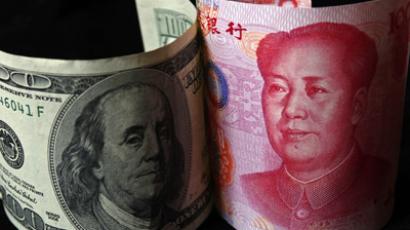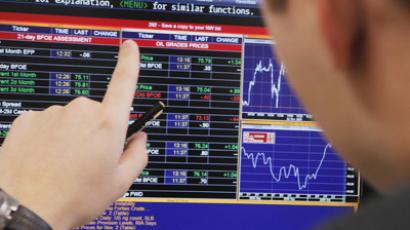BRICS bank on their bank and currencies to withstand financial troubles
The BRICS countries, Brazil, Russia, India, China and South Africa, are putting together some more bricks to make them a stronger economic power - a joint development bank and united stock index.
The plan of establishing the bank is expected to be announced during the BRICS summit in New Delhi, which brings together the leaders and top financial figures of the countries. If implemented this would be the first joint financial enterprise by the five countries, which account for 45 percent of the world's population and a quarter of its economy at $13 trillion.Since the term BRICS was invented in 2001 by Goldman Sachs economist Jim O'Neill the block was often criticized for having nothing in common whether in economic or in political systems.Experts say, the BRICS bank would become a rival for existing international financial behemoths such as the IMF and World Bank and push them to reforms in order to become more fit for current challenges."The IMF and the World Bank their influence reduced significantly over the past decade," agrees Xiang Songzuo from Bank of China."Particularly the previous financial crisis and current financial crisis made me believe they had not played the salvation role in preventing the crisis."In the future IMF and WB will play smaller roles in the global economy and the BRICS financial institution will play more important role, according to him. “This is an alternative to the World Bank itself, it is an alternative to a mortified system of financial institutions,” Yaroslav Lissovolik, the chief economist of Deutsche Bank told RT. However the BRICS bank “would benefit from a blueprint that already exists in the form of the World Bank including the great experience the World Bank has,” he said. The bank would be used in the long term as a lending organization during future financial crises such as the one in Europe as well as provide finance for joint BRICS projects, officials say."The BRICS members are fast growing economies, which is why it is extremely necessary to exchange information on economic prospects from time to time so as to formulate a concerted position in certain cases," Russian president Dmitry Medvedev said. The five countries have been looking for a bigger say on the global financial arena, including mulling the idea of nominating their candidate for the World Bank presidency. Experts say the mere fact of creating the bank should give the countries more weight. “I think this particular measure should be thought off in the context of the broader interest of BRICS economies in terms of elevating their status on international arena,” says Ivan Tchakarov, the chief economist Renaissance Capital.The BRICS will also launch a benchmark equity index derivative shared by the stock exchanges of all the five nations as soon as Friday. The instruments could be bought in local currencies.The nations also plan to sign agreements facilitating banks to extend credit to other members in local currency in order to diminish role of the dollar in trade between them.Using national currencies would reduce macroeconomic risks, stressed Russian Economic Development Minister Elvira Nabiullina. "All countries can face such risks this is why I believe it is very important to use national currencies in developing trade cooperation," she said during the address at the summit. Experts agree, the world needs more reserve currencies as the Western world slides into recession.“The turnover among the BRICS countries is rising,” explains Lissovolik. “In this sense, boosting trade, boosting investment and boosting the role of currencies between BRICS would be a step toward creating a new reserve currency”.Indeed, trade among BRICS members is growing at 28% annually and currently stands at $230 billion a year.But replacing the dollar with other national currencies would take many years as Central Banks’ investments in other currencies are very small, experts stressed. “Let’s look at Russia it already invests in Canadian dollars, in Australian dollars. This is happening but the scale is very minor. In that sense the dollar will remain the most important currency for at least the next 10 to 15 years,” Tchakarov said.














